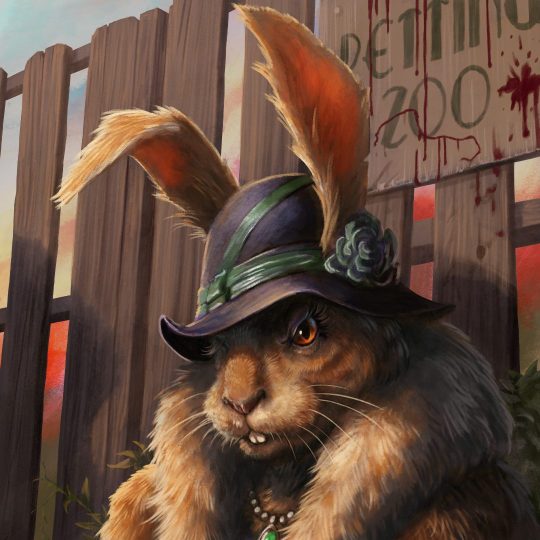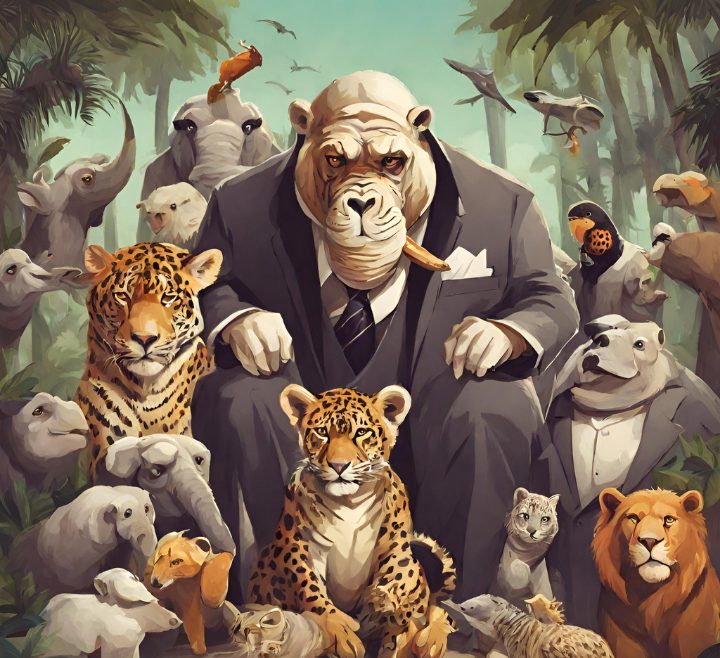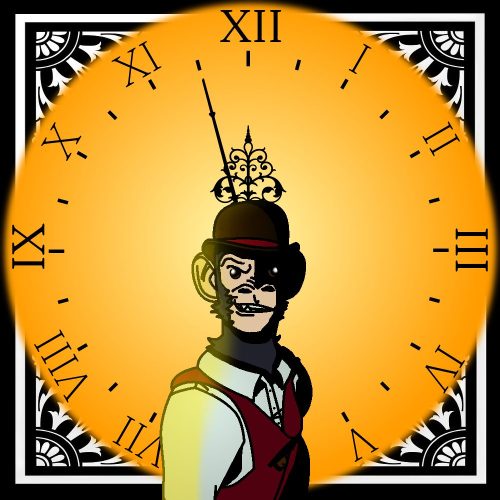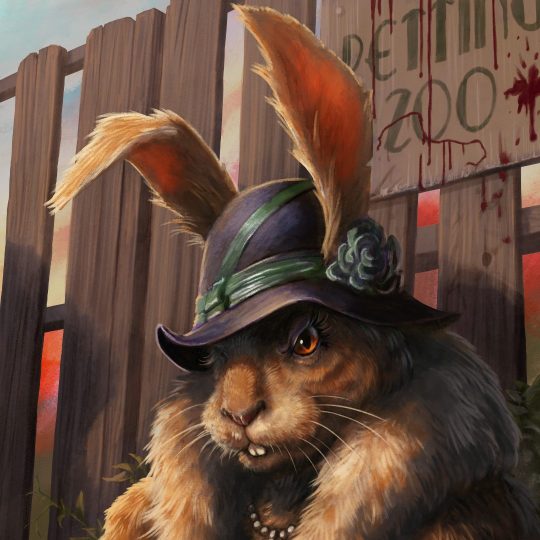
Wanderhome RPG Warms Your Heart with Charming Whimsy
A deep and abiding affection for tabletop roleplaying games and they experiences they facilitate dwells deep in my heart. So when I recently read an article about RPG releases in 2021 I didn’t make it further than the second one on a list of ten. Described as a game where players “live a peaceful life as gentle woodland creatures in an upcoming fantasy RPG about pastoral lifestyles” Wanderhome captured my whimsy right away. The Kickstarter for Wanderhome launched in August 2020 and funded in three hours and continued on to spectacular success. The game’s creator Jay Dragon shared some time and insights about the game and I’m excited to pass them along with my own enthusiasm for this terrific RPG.
An RPG experience to create and share together
I’m a sucker for heartwarming stories and charming illustrations so Wanderhome already took hold of me after only a cursory glance at the original Kickstarter page. You can find a free Playkit to preview the game on the page or directly through this link to Itch.io here. My affection for Wanderhome skyrocketed thanks to the Playkit and one particular line of text specifically.
“The Hæthland was recently caught in war, but is no longer. There is no violence here anymore.”
— from the Wanderhome Playkit by Jay Dragon
Just about every RPG includes, incorporates or straight up focuses on combat — usually as a method of problem solving and overcoming challenges — and Wanderhome’s explicit statement of no violence is phenomenal. The best part of my RPG experiences are the emerging stories and I particularly adore those with fairytale-like qualities so omitting the capacity for destructive confrontations holds enormous appeal. Combat in an RPG can certainly be exhilarating, fun and satisfying but often feels like the default approach. Leaving this temptation out of the equation scores big points for me.
The press quotes on the Wanderhome Kickstarter page really nail a lot of how I felt while learning more about the game there and through the Playerkit, which is such a pleasure to read. Wanderhome indeed feels like a game I’ve been can’t-waiting for a long time as Vincent and Elliot Baker of Lumpley Games describe. It’s also definitely worth reading and analyzing or enjoying purely for art and aesthetic as Samuel Mui Shen Ern of Babblegumsam expresses. If I’m honest much of what I read in the Playerkit feels deeply insightful as regards any RPG or even simply for life in general.
Wanderhome’s rules and structure bring out many of the qualities I strive for in any RPG experience and represent the best of modern approaches to the hobby. The spirit of collaboration, inclusiveness and bespoke features forming the core of the game — rather than suggestive perspectives removed from the central rules and guidelines — takes huge strides forward. The game uses the No Dice, No Masters system, which you might rightly guess means there’s no dice rolling involved and no individual player taking on a unique gameplay role removed from the others. Instead players participate together to imagine what happens as their characters and the kith they share collectively travel across a wonderful world, changing and growing as the seasons pass during their journey. (Wanderhome is built on the Belonging Outside Belonging system created by Avery Alder and Ben Rosenbaum and first used in Dream Askew / Dream Apart.)
I’m very thankful Jay Dragon connected with me after I reached out and took the time to answer a few questions about Wanderhome. This RPG looks and feels quite special and it was challenging to keep the list of questions short. You can learn more about Wanderhome through the links at the end and these questions reflect what came to mind for me personally while exploring the Playerkit. You’ll also find a link to preorder your own copy of this terrific RPG. Enjoy!

Q&A with Jay Dragon, creator of Wanderhome
The description of Wanderhome is so succinct and evocative. Is it something that emerged over development or was it more or less firmly the foundation of Wanderhome from the early on? (“A pastoral fantasy tabletop RPG about traveling animal-folk and the way they change with the seasons.”)
“While a lot of the details of Wanderhome changed in the first few months of development, all of the core principles of the pitch — pastoral fantasy, traveling, changing over a long period of time — were locked in near-immediately. I knew I wanted to do a nonviolent game about journeying through a series of beautiful places, that could theoretically be played for years and years. Once I married that to the idea of a Redwall-esque world of animals, we were all set!”
Your first Kickstarter for Sleepaway was successful and the follow up Wanderhome spectacularly so. What do you think contributed to the big leap?
“While Wanderhome was the second Kickstarter under my own name, I was involved in varying capacities with two other Kickstarters between them — Venture/Dungeon by Riley Rethal, and Wickedness by M Veselak. Those gave me a lot of really solid structural support for bringing Wanderhome forward, although even with that I wasn’t anticipating Wanderhome’s enormous success. I think there were a lot of factors contributing to that. The cover art (by Sylvia Bi) is out of this world incredible, the month leading up to the Kickstarter was an excellent push, the Matt Mercer retweet was obviously huge, and I think we just happened to hit the zeitgeist at just the right time.”
This is the first time I’ve heard of the No Dice, No Masters system and I’m all sorts of intrigued. Was Wanderhome always designed for this system? How does it encourage the type of experience the game aims to facilitate?
“Yeah it was! Almost all of my games are either No Dice No Masters, or are heavily inspired by Avery Alder’s work in that sort of play. The token economy, where players are taking and giving tokens across the table while handing off characters and natures, serves to create a very rhythmic feeling to the rules-lite play. It provides a perfect balance for Wanderhome — just enough structure that you still feel like you’re playing a game, but also an acknowledgement that you’re in the driver’s seat.”
Excuse me if I misuse any game terms: do kith represent shared NPC-like characters in the story, distinct from each player’s individual character?
“Yep! I went with “Kith” instead of “minor character” or “NPC” because I wanted to emphasize that they’re of the same level of importance as anyone else in the world, they’re just not the focus of the table in the moment. I wanted to make sure the boundary between Kith and Playbooks are very fungible, and that no one’s agency is denied.”
I love how part of playing the game includes giving the person who spoke least a chance to participate more and things like that. Was it challenging to find the best spaces for those sorts of guidelines?
“Oh it was so so tricky! It was potentially the hardest part of designing the game? Because I wanted to make sure quieter folks had the chance to speak, without forcing them to speak against their will. There’s a lot of ways to play any game, and a lot of indie games tunnel vision on only one kind of player. So I tried to use the safety tools to give people the space they need!”
The presentation of a loose meta-narrative is such a great idea. That’s an approach we take with content creation too. Are there any neat tidbits you can share or hint at from the book when it is released?
“One of the biggest things I’m excited about the book is how it’s going to be really meta-structural. From our perspective, a lot beyond just the text adds to the way the game is played, including the art and the graphic design. One of my favorite treats is from one of our stretch goals, a whole entire in-universe cookbook at the end of the book, written for the hungry traveler who wants to prepare food for their game table, written by Jeeyon Shim. There’s a lot of really awesome stuff in the full release, but somehow that’s the part that makes me smile the most.”
Wanderhome links and further learning
Wanderhome was created by Jay Dragon and published by Possum Creek Games
- Wanderhome Kickstarter
- Wanderhome Preorder
- Free Playkit
- Possum Creek Games
- Possum Creek Games on Twitter
- Jay Dragon on Twitter
Wanderhome actual plays
- Brennan Lee Mulligan, Joseph Fink, Carly Monardo, Nick Guercio, and Alex Song-Xia play Wanderhome
- Adira Slattery, James D’Amato, Bee Zelda, Steve Discont, and Jeff Stormer play Wanderhome with the Oneshot Network
- Dicebreaker plays Wanderhome
*Featured image — Traveling animal-folk change with the seasons in the pastoral fantasy tabletop RPG Wanderhome. [Cover illustration by Sylvia Bi]









No Comments